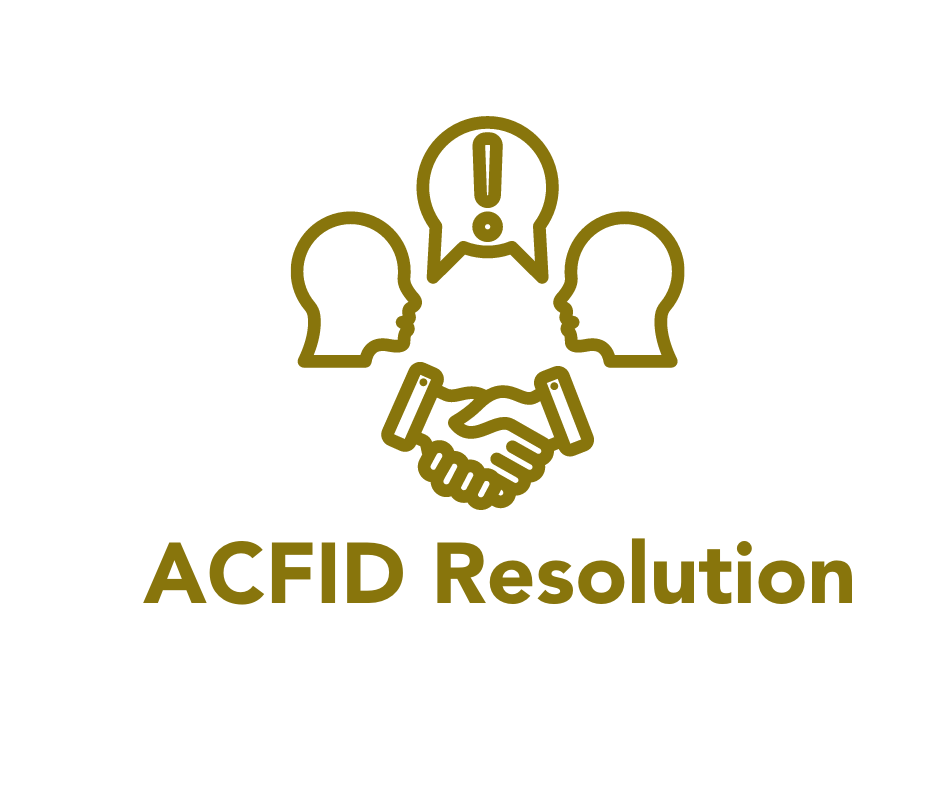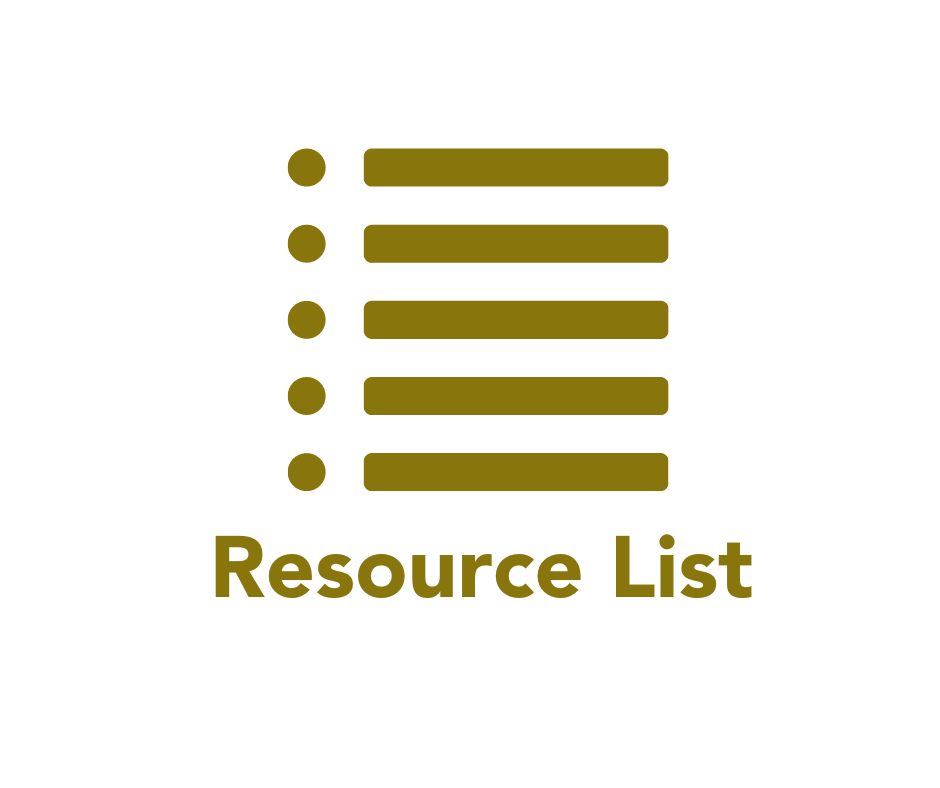Section outline
-
These resources are more general and related to the Locally-led Action as a whole.
Resources
Resolution: Decolonisation, Anti-Racism and Locally Led Action (2022)
Resolution passed at ACFID's 2022 AGM in relation to Decolonisation, Anti-Racism and Locally Led Action
Credit: ACFIDACFID Resolution on Race, Diversity and Australian INGOs (2020)
Resolution passed at ACFID's 2020 AGM in relation to Race, Diversity and Australian INGOs
Credit: ACFIDACFID Racial Justice Resource Library (2022)
This Guide attempts to include the most relevant and useful resources for understanding and undertakingmeasures to address racism as most relevant to the (1) Australian, (2) workplace, and (3) the internationaldevelopment sector, contexts – and all three where possible.
Credit: ACFID Racial Justice CoPDylan Matthews at ACFID Conference: Transforming Partnerships in International CooperationOpens in a new tab
This recording from ACFID Conference 2023 brings Dylan Matthews, CEO of Peace Direct and Chair of CIVICUS sharing reflections from his work as an advocate for systems change, solidarity and shifting power.
Credit: ACFID/Peace DirectDecolonisation and Locally Led Development (2021)
This paper presents a set of practical options for furthering the decolonisation and locally led agendas in shared development work in the Pacific. It includes a question set for individuals to work through to reflect on their personal positioning on these issues, a set of practical proposals for trialling at individual and organisational levels, and a set of more broad-brush proposals for systemic interventions.
Credit: ACFID and La Trobe UniversityStart Network's Anti-Racist and Decolonial Framework (2022)
This framework has been developed to help Start Network, and its members understand and address the many ways in which racism and colonialism can affect our work.
Credit: Start NetworkBecoming Locally Led as an Anti-Racist Practice: A Guide to Support INGOs (2022)Downloads a Word document
This guide has been developed in response to the growing demand from the international development sector, to ensure that organisations change how they work, make decisions, and are structured and governed to become more locally led and anti-racist.
Credit: BondPower Awareness Tool: A tool for analysing power in partnerships for development (2024)Downloads a Word document
The Partos Power Awareness Tool (PAT) is developed as a tool to help make power relations in partnerships more visible. The tool allows the different stakeholders to share and monitor their insights on their decision-making practice within their projects, programs and partnerships. This makes it easier for partners to reflect on their power relations and agree on changes where necessary.
Credit: PartosNEAR Localistion Performance Measurement Framework (2019)Downloads a Word document
The purpose of this Localisation Performance Measurement Framework (LPMF) is to evidence progress made towards achieving localisation commitments. While its focus is on local and national actors, it is also relevant to international NGOs, UN agencies and donors as well as research and academic institutions that are studying or evaluating localisation.
Credit: NEARMeasuring localisation: Framework and Tools (2019)Downloads a Word document
This document outlines an approach, including a framework and some tools, that can be used to measure the activity and impact of localised humanitarian action.
Credit: PIANGO and Humanitarian Advisory GroupInter-Agency Toolkit on Localisation in Humanitarian CoordinationDownloads a Word document
This toolkit is a resource for localisation across a range of clusters and humanitarian coordination structures, with tools relevant to a wide range of practitioners. The toolkit also provides specific resources for local and national actors to strengthen their capacity for influence and leadership in coordination fora.
Credit: Global AP AoR, Save the Children and Street Child UKTime to Decolonise Aid (2021)Downloads a Word document
This report presents the findings and recommendations from consultations with activists, decision makers, academics, journalists and practitioners on current power dynamics and imbalances that exist within the humanitarian, development and peacebuilding sectors.
Credit: Peace DirectTen Efforts to Decolonise Aid (2022)
An overview of 10 initiatives that further the decolonisation agenda in the aid and development sector, including frameworks, leadership models, funding mechanisms, policies and operational approaches.
Credit: The New HumanitarianRace, Power and Peacebuilding (2022)Downloads a Word document
This report explores how racism manifests itself in the peacebuilding sector. It builds on the findings of Time to Decolonise Aid.
Credit: Peace DirectSidekick Manifesto (2022)Downloads a Word document
The Sidekick Manifesto is a call to action for those who seek to address global poverty. It challenges us to shift our perspective, embrace humility, and work alongside local leaders to create lasting impact in the fight against poverty.
Credit: Sidekick ManifestoUnvealing the science behind ‘Shifting Power’: Launch of an academic research (2024)Downloads a Word document
This study provides a detailed examination of power dynamics and efforts to address imbalances between Northern and Southern NGOs.
Credit: PartosLocalisation in Practice: Three examples of the Dutch Relief Alliance’s collective localisation efforts (2021)Downloads a Word document
The report focuses on the Dutch Relief Alliance’s (DRA) efforts in localising humanitarian aid, particularly during the strategic period of 2018-2021. The report includes experiences from joint responses in Somalia, Sudan, and Yemen, analyzing success factors and challenges.
Credit: The Dutch Relief AllianceLocalisation in Practice, Emerging indicators and Practical recommendation (2018)Downloads a Word document
This report discusses the concept of localisation in humanitarian aid. It presents a framework with seven dimensions to assess and plan for localisation in practice. The report also reflects on the contributions of the Disasters and Emergencies Preparedness Programme (DEPP) to localisation and provides recommendations for future preparedness programs.
Credit: Action Against Hunger, Start Network, UK Aid, CDAC NetworkTransforming Partnerships in International Cooperation (2023)
The report aims to provide practical resources for civil society, donors, INGOs, and intermediaries. It is part of a series on decolonizing the sector, following two previous reports: “Time to Decolonize Aid” and “Race, Power, and Peacebuilding”.
Credit: Peace DirectCommunity-Driven Systems Change (2021)
This site includes reports and guidelines developed by Firelight through a process of inquiry, learning, co-creation and validation with CBO partners to develop a deeper understading of how change comes about at the community level, and how funders can more effectively support it.
Credit: Firelight FoundationLocalisation of Aid: Are NGOs Walking the Talk (2017)
This review looks at the current opportunities, challenges and good practice in the relationships between INGOs and local humanitarian actors. It argues that INGOs have to improve their partnership practices with local and national NGOs to better recognize and respond to their leadership, as well as to adapt accordingly their advocacy, media or fundraising work.
Credit: Shifting the Power Consortium and START NetworkUnderstanding Successful Locally Led Humanitarian Responses (2024)
This collaborative research aims to build an understanding of what a successful locally led humanitarian response looks like, how local actors perceive them, and what actions are needed by various actors to achieve success.
Credit: InteractionReframing risk: embracing compliance and risk management to benefit civil society (2023)Downloads a Word document
In Humentum’s Operationalizing Locally-Led Development webinar on “Models to Transform Risk and Compliance,” hear from TechSoup and Kenya Community Development Foundation (KCDF) engage in a conversation about what reframing risk to support CSOs can look like in practice.
Credit: Humentum/TechSoup/Kenya Community Develoment FoundationHow colonial is your organisation?Downloads a Word document
Quiz to assess how colonial your organisation is.
Credit: Common ThreadWhat Transformation Takes: Evidence of Responsible INGO Transitions to Locally Led Development Around the World (2020)Downloads a Word document
An increasing number of international organizations are moving their offices to the Global South. Still more are investing in organizational leadership by national staff. Despite this, examples of mutually agreed upon transition strategies, collaborative decision-making processes and transfers of power to local actors are rare. This setting gives rise to the need for a clearer understanding of how transitions from internationally led to locally led development can occur in responsible, effective and transformative ways. This volume is both a reflection of and response to this context.
Credit: Peace Direct/CDA Collaborative Learnig/ Search for Common GroundFrom talk to transformation: How governments can really "shift the power" towards global justice (2024)Downloads a Word document
This paper takes a critical look at whether governments in the Global North could or should have a role in contributing to these transformative changes. It also examines the risk that the terms ‘feminist’, ‘anti-racist’ ‘decolonial’ and ‘inclusive’ are co-opted by governments and international organisations keen to be seen to be ‘doing the right thing’, and lose their meaning and power.
Credit: Scotland's International Development AllianceOperationalising Locally-Led Development: Cultivating a Healthy Global Development Ecosystem (2023)
This report identifies the practical steps the sector is and should be taking to cultivate a more equitable, resilient, and accountable ecosystem for the years ahead.
Credit: Humentum/Modernising Foreign Assistance NetworkA colonial mindset': why global aid agencies need to get out of the way (2024)
The Guardian news article explaining the rationale for funding local humanitarian organisations.
Credit: The GuardianCreating Equitable South-North Partnerships: Nurturing the Vā and Voyaging the Audacious Ocean Together (2020)
Blurb: Oceanic (Pacific) women’s rights actors have insightful working knowledge and intimate lived experiences of engaging with the Global North. This research report navigates through this knowledge and experience by capturing, amplifying and representing their voices as they share their perspectives on the role of Global North organisations and the interactions they have had with them over the last 30 years. A total of 35 Pacific Island women who have been working in the women’s rights movement space over the last three decades agreed to participate in this research ‘talanoa’ (conversations).
Credit: Ofa-Ki-Levuka Guttenbeil-Likiliki and IWDAOfakilevuka Guttenbeil-Likiliki - Enough is enough: audaciously decolonising the development and humanitarian nexus (2022)Opens in a new tab
This Mitchell Oration from the 2022 Australasian Aid Conference by Ofakilevuka Guttenbeil-Likiliki reflects on research from Creating-Equitable-South-North-Partnerships_Full-Report.pdf (sistalibrary.com.vu) and the speaker's experiences of colonisation in the humanitarian and development space in Tonga.
Credit: Australasian Aid ConferenceThe nine roles that intermediaries can play in international cooperation (2023)
The document identifies nine roles for intermediaries in international cooperation, including interpreter, knowledge broker, trainer, convenor, connector, advocate, watchdog, critical friend, and sidekick.
Credit: Peace DirectThe Water of System Change
Foundations involved in systems change can increase their odds for success by focusing on the least explicit but most powerful conditions for change. The Water of Systems Change report aims to clarify what it means to shift these conditions..
Credit: FSG -
Resources
Localisation in Practice, Emerging indicators and Practical recommendation (2018)
This report discusses the concept of localisation in humanitarian aid. It presents a framework with seven dimensions to assess and plan for localisation in practice. The report also reflects on the contributions of the Disasters and Emergencies Preparedness Programme (DEPP) to localisation and provides recommendations for future preparedness programs.
For this Domain, see: Participation Revolution on Table 3 (pg 30-31)
Credit: Action Against Hunger, Start Network, UK Aid, CDAC NetworkTransforming Partnerships in International Cooperation (2023)
The report aims to provide practical resources for civil society, donors, INGOs, and intermediaries. It is part of a series on decolonizing the sector, following two previous reports: “Time to Decolonize Aid” and “Race, Power, and Peacebuilding”.
For this Domain, see: Program Design (pg 36-37)
Credit: Peace Direct -
Resources
CBO Indicators of Success (2021)
This guide outlines the top five indicators of Community-Based Organization (CBO) effectiveness as identified by CBOs themselves.
Credit: Firelight FoundationParticipatory Community Led Development Assessment Tool and Guidance Documents (2020)
The tool aims to assess and evaluate community-led development programs. The tool facilitates a self, peer, or participatory review to assess how programming aligns with Community-Led Development (CLD) characteristics.
Credit: The Movement for Community-led DevelopmentDecolonising Evidence: Locally-Led Approaches Of Measuring Programme Success (2021)
Takeways from a session at the Start Nework Assembly that explored what alternative approaches to collecting data and measuring success could look like from the perspectives of local communities and non-western lenses.
Credit: Start NetworkAccountability & Metrics (2023)
The PALM aspires to provide a new paradigm for mutual accountability and collaborative learning in the sector by shifting the accountability equation towards the needs of local and national CSOs, rather than INGOs and donors.
Credit: Pledge for change -
Resources
Localisation in Practice, Emerging indicators and Practical recommendation (2018)
This report discusses the concept of localisation in humanitarian aid. It presents a framework with seven dimensions to assess and plan for localisation in practice. The report also reflects on the contributions of the Disasters and Emergencies Preparedness Programme (DEPP) to localisation and provides recommendations for future preparedness programs.
For this Domain, see: Relationship Quality and Partnership on Table 3 (pg 28-30) and Coordination, Task Forces and Collaborative Practices (pg 37)
Credit: Action Against Hunger, Start Network, UK Aid, CDAC NetworkTransforming Partnerships in International Cooperation (2023)
The report aims to provide practical resources for civil society, donors, INGOs, and intermediaries. It is part of a series on decolonizing the sector, following two previous reports: “Time to Decolonize Aid” and “Race, Power, and Peacebuilding”.
For this Domain, see: Vision, purpose and goal setting (pg 33) and Roles and Responsibilities (pg 35-36)
Credit: Peace DirectCapacity Strengthening for Community-Driven Systems Change (2021)
This guide outlines aspects for how funders think about and strengthen CBO's capacities.
Credit: Firelight FoundationCreating Equitable South-North Partnerships (2020)
A case study in the Oceanic Pacific - 35 women leaders from the Global south courageously share their prespective of engagement with Global North organisations 1990-2020.
Credit: IWDALocalisation of Aid: Are NGOs Walking the Talk (2017)
This review looks at the current opportunities, challenges and good practice in the relationships between INGOs and local humanitarian actors. It argues that INGOs have to improve their partnership practices with local and national NGOs to better recognize and respond to their leadership, as well as to adapt accordingly their advocacy, media or fundraising work.
Section 2: Practices of Partnership and Section
In section 2, the research identifies a discrepancy between INGOs’ descriptions of their partnership practices and the actual experiences of their partners. It emphasizes the need for a shift from project-based to strategic partnerships and highlights the importance of pre-positioned partnerships for effective localized responses
Section 3: Organisation support and capacity strengthening
The section 3 discusses the necessity for INGOs to invest in their own agencies to facilitate a power shift. This includes focusing on behaviors, systems, and structures that support localisation, such as performance management systems. It also mentions the SHAPE framework, which aids NGOs in increasing their power and influence within the humanitarian system.
Credit: Shifting the Power Consortium and START NetworkCrossing The Bridge: A Practical Guide to Support Good Intermediary Practice (2024)
Partnerships are vital in promoting locally led response, laying the foundation for how local and national actors work with intermediary partners. A good intermediary bridges the gap between donors and local humanitarian actors, ensuring aid is delivered effectively and sustainably and shaping how partnerships are put into practice.
Credit: Humanitarian Advisory GroupMeasuring the contribution of intermediary organisations (2021)
Improving outcomes for individuals and communities in Australia is complex. Similarly, the systems which aim to address disadvantage are complex, with varied governance, funding and structural arrangements. As such, intermediaries can boost the impact of many actors, increasing overall effectiveness and improving outcomes for individuals and communities most at risk of cycles of disadvantage.
Credit: Paul Ramsay Foundation -
Resources
SIDA Inclusive Language Guide (2024)
This inclusive language guide aims to help colleagues avoid bias, stop reinforcing existing power structures, and convey respect. Tthis language guide hopes to ensure our language iscontributing to—not getting in the way of—the fundamental changes we are looking to make in the world: equality, inclusion, fairness, decolonisation, and global justice.
Credit: Scotland's International Development AllianceTransforming Partnerships in International Cooperation (2023)
The report aims to provide practical resources for civil society, donors, INGOs, and intermediaries. It is part of a series on decolonizing the sector, following two previous reports: “Time to Decolonize Aid” and “Race, Power, and Peacebuilding”.
For this Domain, see: Communication and language (pg 34)
Credit: Peace DirectLocalisation of Aid: Are NGOs Walking the Talk (2017)
This review looks at the current opportunities, challenges and good practice in the relationships between INGOs and local humanitarian actors. It argues that INGOs have to improve their partnership practices with local and national NGOs to better recognize and respond to their leadership, as well as to adapt accordingly their advocacy, media or fundraising work.
Section 4: Communication, fundraising and funding
Section 4 discusses the challenges and contradictions faced by International Non-Governmental Organizations (INGOs) in their efforts to shift power towards local partners, particularly in the context of communication, fundraising, and funding.
Credit: Shifting the Power Consortium and START NetworkTaking British politics and colonialism out of our language: Bond’s language guide (2021)
The guide emphasizes the need to move away from language that reinforces colonial or outdated thinking and to adopt a more progressive, inclusive, and locally-led approach. It outlines principles for language use, suggests alternatives to problematic terms, and encourages consistent language that aligns with values of equality, diversity, and inclusion.
Credit: BondInclusive Language Guide (2023)
The guide aims to reflect Oxfam’s values and work, emphasizing the power of language to either reinforce or deconstruct systems of power that maintain poverty and inequality. It covers thematic sections on gender justice, disability, mental health, race, power, decolonization, and more, providing examples and advice for inclusive language use.
Credit: OxfamDochas Guide to Ethical Communications (2023)
The Guide is a support to organisations seeking to implement best practice in ethical communications. It outlines key considerations (including locally led action) and good practice for those working with imagery and messages in development and humanitarian settings.
Credit: DochasPutting the people in the pictures first: Ethical guidelines for the collection and use of content (2019)
The guidance is about ethical practices for collecting and using content such as images and stories in international development work.
Credit: BondWho Owns the Story? (2022)
The study explores the impact of fundraising appeals created by the people they are intended to help versus those created by the charity itself. This study challenges the traditional approach to INGO storytelling and suggests a more participatory and ethical method can be both effective and empowering.
Credit: Amref Health AfricaStorytelling 101 (2021)
This page discusses ethical storytelling in non-profit marketing, emphasizing the importance of respecting and empowering the individuals whose stories are being told.
Credit: Sidekick Manifesto -
Resources
Localisation in Practice, Emerging indicators and Practical recommendation (2018)Downloads a Word document
This report discusses the concept of localisation in humanitarian aid. It presents a framework with seven dimensions to assess and plan for localisation in practice. The report also reflects on the contributions of the Disasters and Emergencies Preparedness Programme (DEPP) to localisation and provides recommendations for future preparedness programs.
For this Domain, see: Visibility and Disaster & Humanitarian Policies, Standards & Plans on Table 3 (pg 38-39)
Credit: Action Against Hunger, Start Network, UK Aid, CDAC NetworkLocally Led Advocacy: Opportunities, Challenges and What We’ve Learned Along the Way (2021)
This conversation explores locally led advocacy - what it means, why it's important, how to do it and how to do it better.
Credit: Global Health Advocacy IncubatorWhere do we go from here? (2024)
NNGOs and SNGOs hold shared frustrations around a global aid system founded on colonial legacies of inequality, raising serious questions about whether it is fit for purpose. This policy brief provides a base to further these discussions for more equitable systems and relationships
Credit: Partos -
Resources
How to share risks and give more power to local actors? A look at adapting risk sharing for localisation (2023)
Reflections and recommendations on sharing risk in humanitarian action.
Credit: VOICEeu/OXFAM/CEFORDLocalisation in practice II Implementing Risk Sharing in humanitarian action: Findings from Bangladesh (2023)
Recognising that sharing risks is one component of lived equitable partnerships, this paper gathers the experiences of humanitarian donors and international and local organisations involved in what they perceive as “equitable partnerships” in Bangladesh. This paper outlines hands-on ideas for Risk Sharing activities, particularly in the areas of risk assessment and preventive risk mitigation.
Credit: Centre for Humanitarian ActionRisk Management and Locally Led Development - Understanding how to better manage risks for sustainable impact (2023)
This Perspectives note provides key lessons for risk management in locally led and owned development co-operation. This note examines necessary reforms to risk management from three perspectives. The first focuses on organisational systems for risk management to ensure they enable rather than impede partnering with local actors. The second perspective explores adjustments to due diligence and risk management in partnerships. The third deals with creating an enabling environment by sensitising domestic oversight bodies.
Credit: Organisation for Economic Co-Operation and DevelopmentOperationalising Locally-Led Development: Cultivating a Healthy Global Development Ecosystem (2023)
This report identifies the practical steps the sector is and should be taking to cultivate a more equitable, resilient, and accountable ecosystem for the years ahead.
For this Domain, see: Page 13-14 on Risk and Compliance
Credit: Humentum/Modernising Foreign Assistance NetworkDue diligence passporting - a possible solution to a locally-identified challenge (2023)
A proposed strategy to avoid the burdens of due dilligence assessments
Credit: Humentum/TrocaireCreating Risk Assessments with Community (2023)Opens in a new tab
Lana Woolf shares her experiences of using a 'dignity of risk' approach through co-designing risk assessments and mitigation strategies with the diverse communities - making space for centring the community's lived experience of navigating risk every day.
Credit: Community Powered Resources -
Resources
Transforming Partnerships in International Cooperation (2023)
The report aims to provide practical resources for civil society, donors, INGOs, and intermediaries. It is part of a series on decolonizing the sector, following two previous reports: “Time to Decolonize Aid” and “Race, Power, and Peacebuilding”.
For this Domain, see: Changing mindsets and worldviews (pg 31-32)
Credit: Peace Direct -
Resources
Localisation in Practice, Emerging indicators and Practical recommendation (2018)
This report discusses the concept of localisation in humanitarian aid. It presents a framework with seven dimensions to assess and plan for localisation in practice. The report also reflects on the contributions of the Disasters and Emergencies Preparedness Programme (DEPP) to localisation and provides recommendations for future preparedness programs.
For this Domain, see: Funding and Financing on Table 3 (pg 32-34) and Capacity Enhancement (pg 35-36)
Credit: Action Against Hunger, Start Network, UK Aid, CDAC NetworkOperationalising Locally-Led Development: Cultivating a Healthy Global Development Ecosystem (2023)
This report identifies the practical steps the sector is and should be taking to cultivate a more equitable, resilient, and accountable ecosystem for the years ahead.
For this Domain, see: Page 11-12 on Funding and Financial Systems
Credit: Humentum/Modernising Foreign Assistance NetworkTransforming Partnerships in International Cooperation (2023)
The report aims to provide practical resources for civil society, donors, INGOs, and intermediaries. It is part of a series on decolonizing the sector, following two previous reports: “Time to Decolonize Aid” and “Race, Power, and Peacebuilding”.
For this Domain, see: Budgeting (pg 37-42)
Credit: Peace DirectGrantmaking for Community-Driven Systems Change (2021)
The guide discusses strategies for grantmaking that supports community-driven systems change.
Credit: Firelight FoundationExploring the new world: Practical insights for funding, commissioning and managing in complexity (2023)
Too often, those who hold power – and resource – can dilute these complexities. They have looked to make the challenges come to them, to fit their model and to tick their box, to define their work on the basis of what they want, rather than what’s right for the community. But we are seeing a shift. The research undertaken for this report show that funders and commissioners recognise that change is happening, and they are seeing this manifested in their own organisations.
Credit: Collaborate -
Resources
Operationalising Locally-Led Development: Cultivating a Healthy Global Development Ecosystem (2023)
This report identifies the practical steps the sector is and should be taking to cultivate a more equitable, resilient, and accountable ecosystem for the years ahead.
For this Domain, see: Page 9-10 on People and Culture
Credit: Humentum/Modernising Foreign Assistance NetworkWhat's Unsaid: Double standards leave local aid workers unprotected (2024)
When a crisis hits, protection and evacuation measures are usually reserved for foreign aid workers – despite local staff being the backbone of the international humanitarian system.
Credit: The New Humanitarian/Action for HumanityRacism, power and truth: Experiences of people of colour in development (2021)
The report emphasizes the importance of understanding and addressing racism within the development sector to foster a more inclusive environment. It discusses the impact of structural racism in the UK development sector and the need for anti-racist actions.
Credit: BondYielding and Wielding Power Toolkit (2021)
The Yielding and Wielding Power Toolkit is a collection of question sets and short 'how-to' guidance. The toolkit sets out practical options for individuals and organisations to further the decolonisation and locally led agendas.
Credit: ACFID and La Trobe UniversityACFID Connect: Race and Diversity in the SectorOpens in a new tab
Discussions amongs ACFID's membership in response to the 2020 Resolution on Race, Diversity and Australian NGOs
Credit: ACFIDActionAid’s Ten Principles of Feminist Leadership
This article highlights ActionAids approach to feminist leadership, emphasizing the importance of creating a just world free from poverty, oppression, and patriarchy.
Credit: ActionAidRethinking Humanitarianism | How to step aside to promote change (2024)
This podcast examines the need for commitments towards localisation and decolonisation in humanitarian work, questioning how to support those who need to move on from their roles.
Credit: The New Humanitarian -
Resources
National-Level Networks Advancing Locally Led ActionDownloads a Word document
This Practice Example relates to the following Domains:
- Collaboration
- Resource Management
Enabling Locally Led response in Ukraine through the Australian Humanitarian Partnership (2024)Downloads a Word document
This Practice Example relates to the following Domains:
- Quality and Effectiveness: Planning and Design
- Quality and Effectiveness: Implementation, Monitoring and Evaluation
- Collaboration
Credit: World Vision
Intersectoral Collaboration: Dissemination of Land Rights in Laos (2024)Downloads a Word document
This Practice Example relates to the following Domains:
- Collaboration
- Communication
- Advocacy
Credit: Tearfund/World Renew
Working at the intersection of gender inequality and disability discrimination: WITTT Sunshine and ActionAid Vanuatu (2024)Downloads a Word document
This Practice Example relates to the following Domains:
- Quality and Effectiveness: Planning and Design
- Collaboration
Credit: Action Aid
Healthcare Management and Leadership in Timor-Leste (2024)Downloads a Word document
This Practice Example relates to the following Domains:
- Quality and Effectiveness: Planning and Design
- People and Culture
Credit: St John of God International Healh
Peer Learning Forum in Child and Youth Programming (2024)Downloads a Word document
This Practice Example relates to the following Domains:
- Quality and Effectiveness: Planning and Design
- Collaboration
Credit: Transform Aid International
Peer Partner Visits Strengthen Child Participation (2024)Downloads a Word document
This Practice Example relates to the following Domains:
- Quality and Effectiveness: Planning and Design
- Quality and Effectiveness: Implementation, Monitoring and Evaluation
- Collaboration
Credit: Transform Aid International
Community-Led Monitoring and Evaluation (M&E) (2024)Downloads a Word document
This Practice Example relates to the following Domains:
- Quality and Effectiveness: Implementation
- Monitoring and Evaluation
Credit: Transform Aid International
Project co-design transfers decision-making to target communities (2024)Downloads a Word document
This Practice Example relates to the following Domains:
- Quality and Effectiveness: Planning and Design
Credit: Transform Aid International
Expertise Transfer in Forsa Project (2024)Downloads a Word document
This Practice Example relates to the following Domains:
- Quality and Effectiveness: Planning and Design
- Quality and Effectiveness: Implementation, Monitoring and Evaluation
- Collaboration
Credit: Act for Peace/DSPR Jordan
Putting Organisations of People with Disability upfront (2024)Downloads a Word document
This Practice Example relates to the following Domains:
- Collaboration
- Risk
- Resource Management
Credit: CBM
Partnership Health Checks (2024)Downloads a Word document
This Practice Example relates to the following Domains:
- Collaboration
Credit: Mary Mackillop Today







